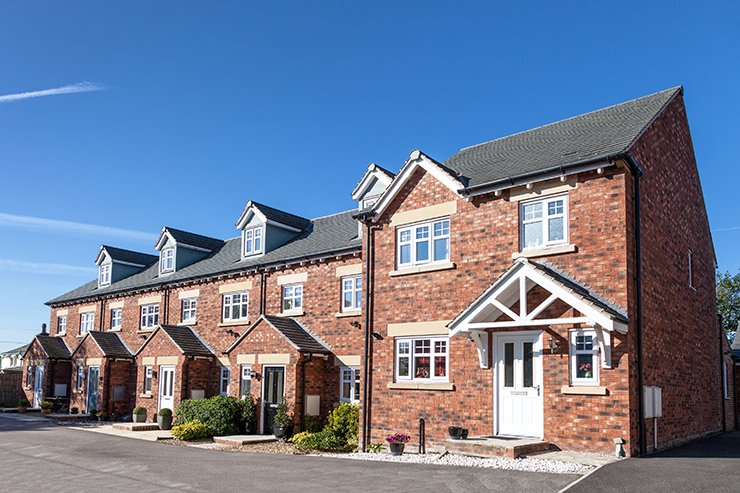Should you make a low offer on a house? – guest post by Phil Spencer

In a buyer’s market, potential buyers look for a bargain. Lowball offers that might otherwise seem cheeky and unwelcome become the chosen tactic of many house hunters. This is because agents often advised buyers not to make ‘disrespectful’ offers that could insult the seller. Sellers, on the other hand, are told not to entertain such insulting offers. Yet, in a buyers market, lowball offers have the potential to start conversations.

A lowball offer is usually described as 25% less than the asking price. For example, an offer of £220,000 for a property advertised at £300,000 would fall into this category. Most of the time sellers won’t be very happy and won’t accept the offer.
Making an offer can be tricky. You don’t want to go in too low and risk losing the property, but at the same time you don’t want to over pay either. If you do want to make a low offer you need to understand the seller’s position. Are they motivated to sell quickly or are they happy to wait around to get the best price? Most importantly, have they had any other offers? Legally, the estate agent isn’t able to tell you how much other bidders are offering, but they can indicate if they are in the same region as yours or closer to the asking price.

Asking prices are just a guide and there’s often some room for negotiation baked in. Typically, the sale price is around 95% of the asking price.
The best way to gauge an appropriate price for a property is to look at recent sale prices (rather than asking prices) of comparable properties in the area. There is a time lag between when a property goes under offer (reflecting the market price at that time), the time the deal completes (several months later) and the time that price figure is reflected in statistics, such as those of the Land Registry. Try to ensure you know as much as possible about the comparable price figures you’re using. These prices should be taken with a pinch of salt. They don’t show the condition of the properties and prices can fluctuate rapidly in a changing market. They will, however, give you a useful indication.
If you do decide to go in with a low offer, make sure you have a reason(s) for it. In other words, do your homework. Whether it’s an out-dated bathroom suite, damp in the basement, or the local sale prices being lower than the asking price, always justify your offer. As a buyer, it’s important to remember that an estate agent is working for the seller, so don’t tell them your absolute maximum price (keep a bit of mystique).

Making a low opening offer can be a good way to open up a conversation and understand from the agent’s reaction what the seller’s price aspirations are. If a property has been on the market for a while, a low offer that gets a dialogue started can result in a good deal for all parties.
The worst buyer behaviour is gazundering. This is when the buyer waits until the last moment to reduce their offer, usually when everyone in the chain is ready to exchange, knowing that if the buyer refuses they could lose the property they’re about to buy. As a buyer, the problem with going in with a lowball offer is that the vendor may suspect you’ll decrease the offer last minute and gazunder them. If the vendor’s agent thinks there’s a likelihood of this happening they may advise the seller not to accept the offer in the first place and hold out for a better buyer.

The amount you’re prepared to pay will vary depending on how you intend to use the property. If it’s an investment, then you should do your homework. Have a maximum figure and stick to it, based on the profit you can make from the property. On the other hand, if you’re buying a family home that you plan to live in for a number of years you might be prepared to pay more than the property’s market value for your ideal home.
By all means make a lower offer, but not simply because you believe it’s now the done thing. Always have reasons for the price you’re offering. If you’re not prepared to risk offending the seller or losing the property to another buyer, then make a realistic offer based on what you can afford (avoid taking out a mortgage that’s more than 75% of the purchase price), the condition of the property and the recent sold prices of similar properties.
Remember that every sale is unique, from the condition of the property to the seller’s situation. Make sure you’re clued up, so you can make an appropriate offer, based on all of these factors.
Best,
PHIL





It is appropriate time to make some plans for the future and it’s time to be happy. I have read this post and if I could I wish to suggest you few interesting things or suggestions. Perhaps you can write next articles referring to this article. I want to read even more things about it!
I’m extremely inspired together with your writing abilities as smartly as with the layout for your weblog. Is that this a paid subject matter or did you modify it yourself? Anyway keep up the excellent quality writing, it is rare to see a nice blog like this one these days..
I remember selling my house in North London.
A couple came to view and a day later put in a fantastically low offer (over 30% less than the selling price, which reflected the market and recent sales in the same street. That offer was rejected straight off.
A week later the same couple put in another offer, this time 25% less than the selling price…only to be told by the estate agent that another offer (for the asking amount) had been received and I’d accepted it. This was long before the Web sites like rightmove existed to see a houses’ status change to ‘STC’ or ‘Under Offer’.
Low-and-behold the couple turned-up on my doorstep one evening, hugely indignant that their offers had been rejected – how dare I reject their offers!
After a brief introduction to basic economics and house-buying (the bloke in the couple was a social sciences lecturer and struggled with ‘scientifical’ concepts) they finally accepted that they had blundered – having decided that they thought my house had been the one they loved.
Nonetheless they fouled-up their offers well-and-good.
In 2018, what percetage can I reduce the asking price of a flat and have the offer accepted?
No other offers
Property been on the market for 3 months
One previous offer for the full asking price, fell thought, due to a clause in the lease, now rectified.
Flat appears to be in good condition
Good area and good views. Allocated parking
Flat based in East Sussex
Hi Andrew, Phil doesn’t monitor these posts so you’d want to contact him through Twitter.
Can I just say… Isn’t a guzunder a name for a chamber pot,?
Did you mean Gazumping?